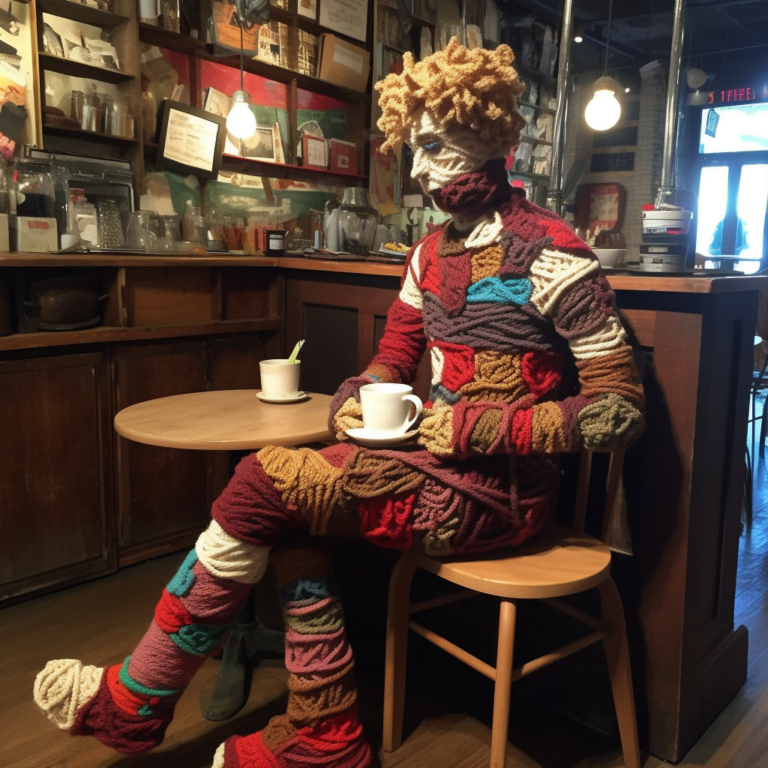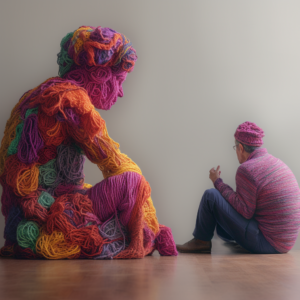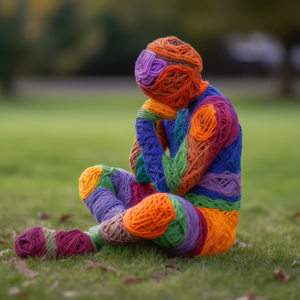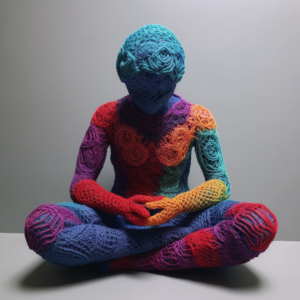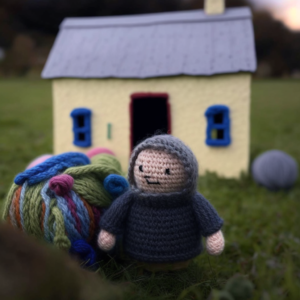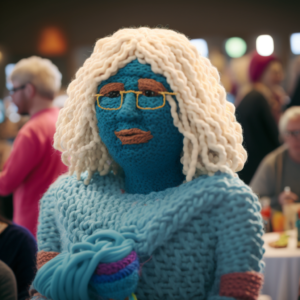“Breaking down barriers and building meaningful connections for late-diagnosed autistic adults.”
This article will discuss how to overcome social isolation, and how friends and family can help late-diagnosed autistic adults connect with others. Social isolation is a common issue for autistic adults, and it can have negative impacts on their mental health and overall well-being. However, with the support of loved ones, autistic adults can learn to navigate social situations and build meaningful relationships.
The Importance of Understanding Late-Diagnosed Autism to Overcome Social Isolation
As someone who was diagnosed with autism later in life, I know firsthand how difficult it can be to connect with others and overcome social isolation. It can feel like you’re on the outside looking in, unable to understand the social cues and unwritten rules that seem to come so naturally to everyone else.
But the good news is that with the help of friends and family, it is possible to break through that isolation and build meaningful connections with others. Here are some tips for how loved ones can support late-diagnosed autistic adults in their journey towards social connection.
Provide a Safe and Supportive Environment
First and foremost, it’s important to understand that autism is a spectrum disorder, and each person’s experience with it is unique. Some autistic individuals may struggle with sensory processing, while others may have difficulty with social communication or executive functioning. By taking the time to learn about your loved one’s specific challenges and strengths, you can better support them in their efforts to connect with others.
One of the biggest barriers to social connection for autistic adults is the fear of rejection or misunderstanding. Many of us have experienced negative social interactions in the past, and may be hesitant to put ourselves out there again. This is where friends and family can play a crucial role in providing a safe and supportive environment for socializing.
For example, you might consider hosting a small gathering with a few close friends or family members, and letting your loved one know that they are welcome to attend without any pressure to socialize if they don’t feel comfortable. This can help to build confidence and reduce anxiety around social situations.
Find Social Activities That Align With Interests
Another way to support your loved one is by helping them to find social activities that align with their interests and strengths. For example, if they enjoy art or music, you might look for local classes or groups that focus on those areas. If they are passionate about a particular topic, you might suggest joining an online forum or community where they can connect with others who share their interests.
Explore Online Communities to Overcome Social Isolation
It’s also important to recognize that social connection doesn’t always have to happen in person. Many autistic adults find that online communities and social media platforms can be a valuable way to connect with others who understand their experiences. Encourage your loved one to explore these options and provide guidance on how to navigate these spaces safely and respectfully.
Finally, it’s important to remember that building social connections takes time and effort. It’s not something that can happen overnight, and there may be setbacks along the way. But with patience, understanding, and support from friends and family, it is possible to overcome social isolation and build meaningful connections with others.
Late-diagnosed autism can present unique challenges when it comes to social connection, but with the help of friends and family, it is possible to overcome these barriers. By providing a safe and supportive environment, helping to find social activities that align with their interests, and encouraging exploration of online communities, loved ones can play a crucial role in helping autistic adults build meaningful connections with others. Remember, social connection takes time and effort, but with patience and support, it is possible to break through the isolation and build a fulfilling social life.
Strategies for Friends and Family to Support Late-Diagnosed Autistic Adults in Building Social Connections
As a late-diagnosed autistic adult, I know firsthand how difficult it can be to connect with others. Social isolation can be a common experience for those on the autism spectrum, but it doesn’t have to be a permanent one. With the help of friends and family, it’s possible to overcome social isolation and build meaningful connections with others.
Be Patient and Understanding
One of the most important things that friends and family can do to support late-diagnosed autistic adults is to be patient and understanding. It can take time for us to feel comfortable in social situations, and we may need to take breaks or step back from socializing at times. It’s important for our loved ones to respect our boundaries and not push us too hard.
Provide Opportunities for Socialization
Another way that friends and family can help is by providing opportunities for socialization. This could mean inviting us to social events or gatherings, or even just suggesting activities that we can do together. It’s important to keep in mind that not all social situations will be comfortable for us, so it’s okay to start small and work our way up to larger gatherings.
Be Mindful of Sensory Needs
It’s also helpful for friends and family to be aware of our sensory needs. Many autistic individuals have sensory sensitivities that can make certain social situations overwhelming or uncomfortable. By being mindful of our needs and making accommodations when possible, our loved ones can help us feel more comfortable and at ease in social situations.
Engage in Meaningful Conversations
Communication is key when it comes to building social connections. Friends and family can help by being good listeners and engaging in meaningful conversations with us. It’s important to remember that autistic individuals may communicate differently than neurotypical individuals, so it’s important to be patient and open-minded.
Find Social Groups or Communities
Another way that friends and family can support us is by helping us find social groups or communities that align with our interests. This could mean connecting us with local autism support groups or online communities where we can connect with others who share similar experiences and interests.
Celebrate Successes in Overcoming Social Isolation
Finally, it’s important for friends and family to celebrate our successes and support us through our challenges. Building social connections can be a difficult and sometimes overwhelming process, but with the support of our loved ones, we can overcome social isolation and build meaningful relationships with others.
In conclusion, social isolation can be a common experience for late-diagnosed autistic adults, but it doesn’t have to be a permanent one. With the help of friends and family, it’s possible to overcome social isolation and build meaningful connections with others. By being patient and understanding, providing opportunities for socialization, being mindful of our sensory needs, engaging in meaningful conversations, helping us find social groups or communities, and celebrating our successes, our loved ones can play a crucial role in supporting us on our journey towards building social connections.
How to Overcome Social Isolation as a Late-Diagnosed Autistic Adult: Understanding, Support, and Resources
As a late-diagnosed autistic adult, I know firsthand how difficult it can be to connect with others and overcome social isolation. For years, I struggled to make friends and form meaningful relationships, feeling like an outsider in social situations. However, with the help of friends and family, I was able to find community resources and support groups that have made a world of difference in my life.
Be Understanding and Supportive
One of the most important things that friends and family can do to help late-diagnosed autistic adults is to be understanding and supportive. It can be hard for neurotypical people to understand the challenges that autistic individuals face in social situations, but simply listening and offering encouragement can go a long way. When I first received my diagnosis, my family was there for me every step of the way, offering a listening ear and helping me to navigate the complex world of autism.
Encourage the Search for Resources
Another way that friends and family can help is by encouraging late-diagnosed autistic adults to seek out community resources and support groups. These resources can provide a safe and welcoming space for autistic individuals to connect with others who share similar experiences and challenges. For me, joining a local autism support group was a game-changer. I was able to meet other autistic adults who understood what I was going through and could offer advice and support. It was a relief to know that I wasn’t alone in my struggles.
There are many different types of community resources and support groups available for late-diagnosed autistic adults. Some are focused on social interaction and building friendships, while others may be more focused on specific issues such as employment or mental health. It’s important to do some research and find a group that feels like a good fit. Online resources such as Autism Speaks and the Autism Society of America can be a great place to start.
In addition to community resources and support groups, there are also many online communities and forums where late-diagnosed autistic adults can connect with others. These can be a great option for those who may not have access to in-person support groups or who prefer to connect with others online. Many autistic people have recently found community with other neurodivergent people under the hashtag #actuallyautistic on TikTok.
Help Build Social Skills
It’s important to remember that finding community resources and support groups is just one piece of the puzzle when it comes to overcoming social isolation as a late-diagnosed autistic adult. It’s also important to work on developing social skills and building confidence in social situations. This can be a challenging process, but with the help of friends and family, it’s possible to make progress.
One way to work on social skills is to practice in low-pressure situations, such as with family members or close friends. This can help to build confidence and reduce anxiety in social situations. It’s also important to be patient with yourself and to celebrate small victories along the way. Making progress in social skills can be a slow process, but every step forward is worth celebrating.
In conclusion, overcoming social isolation as a late-diagnosed autistic adult can be a challenging process, but with the help of friends and family, it’s possible to find community resources and support groups that can make a world of difference. By being understanding and supportive, encouraging the search for resources, and helping to build social skills, friends and family can play a crucial role in helping autistic individuals connect with others and build meaningful relationships.
How to Overcome Social Isolation: Conclusion
Friends and family can play a crucial role in helping late-diagnosed autistic adults overcome social isolation. By providing support, understanding, and encouragement, loved ones can help these individuals build meaningful connections with others and lead fulfilling lives. It is important for society to recognize the unique challenges faced by autistic adults and work towards creating a more inclusive and accepting environment for all individuals.

